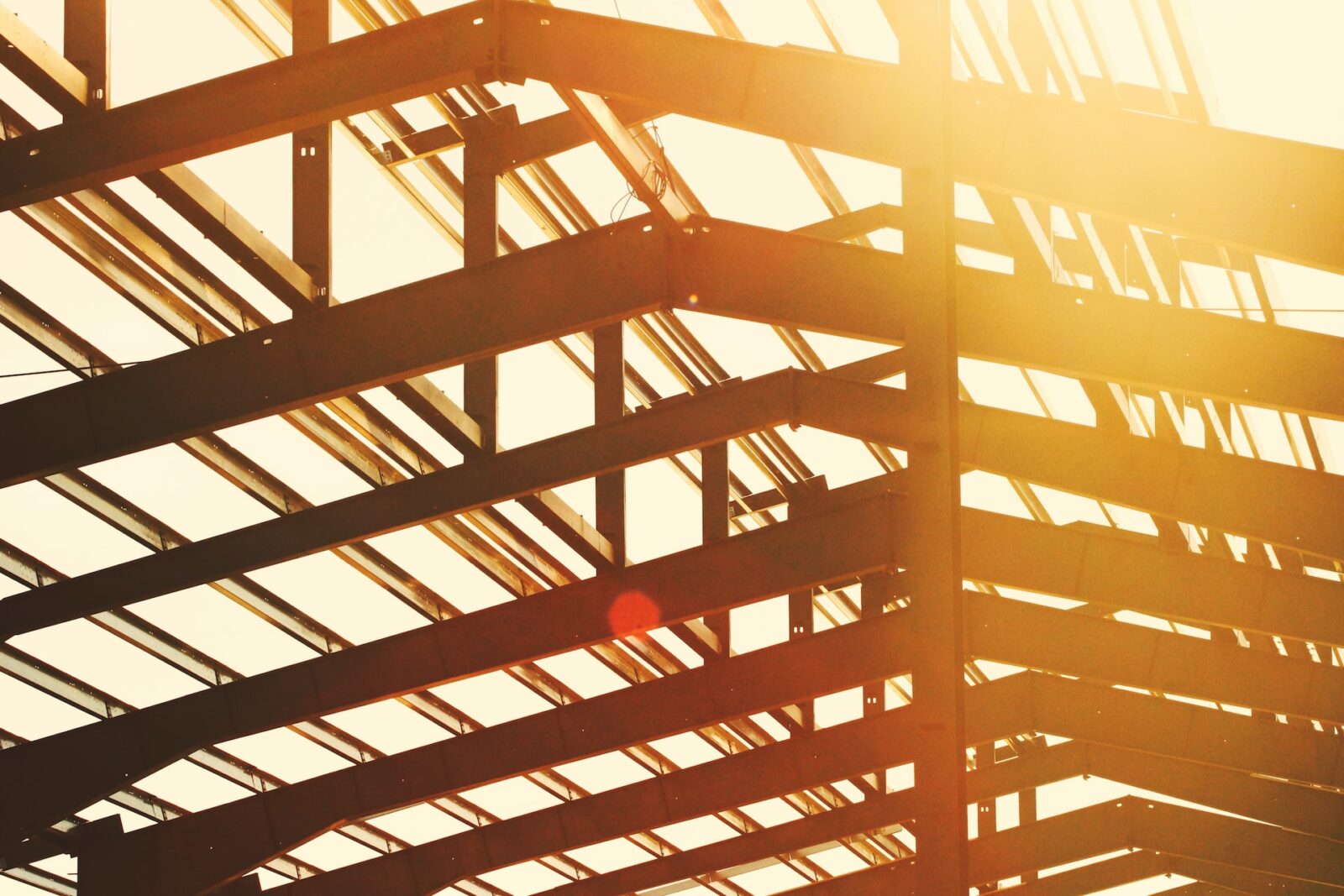
Choosing a Steel Supplier for Commercial Construction
Steel is used widely across the world in a variety of projects, from transportation infrastructure and commercial buildings to consumer goods, to add strength, durability, and reliability to the final project. However, steel for construction isn’t the same as steel for automotive. This post will discuss why steel building materials are preferred for construction and the factors to consider when sourcing a steel supplier.
Why steel is good for construction?
Steel is known for its strength and durability and can also lower the overall costs associated with a project. Using steel building materials allows you to use fewer materials to achieve the same outcome as other materials, thus reducing the material costs associated with a project.
From a sustainability standpoint, one would be hard-pressed to find a better material as steel can be infinitely recyclable, and because fabrication processes are so precise, there is little to no waste. With a more compact material footprint, the end product can be sleeker resulting in more usable space in a new building with the same footprint.
Steel is not porous like wood and projects utilizing steel can be completed in any weather, which can shorten project timelines and make scheduling projects less complicated. This may also be beneficial when looking for construction workers, as many are busy working on other projects in the warmer and dryer months and may have more availability in their schedules in the “off” season.
Factors to consider when choosing a steel supplier for commercial construction
(1) Product Range
Look for a steel supplier with a range of steel products, so you don’t have to source from multiple suppliers. When you order pieces from different suppliers, you will often receive some before others leading to construction delays.
Most common steel used in construction
Several forms of steel are used in construction, and they can all be made using different ratios of carbon. For most fabrication purposes, steel typically comes as structural steel, merchant bar, or rebar. When choosing steel, engineering and construction requirements will dictate the specification and grades of the different steel used.
(2) Expertise
A company that has experience and expertise in a wide variety of applications, is open-minded, and takes a collaborative approach will ensure you get the best outcome. Look for a steel supplier who can help you source the right steel for your project.
Which steel grade is best for construction?
On a basic level, what kind of steel is used in construction comes down to the purpose of the individual projects, as steel properties vary with the different steel grades.
Carbon steel
Carbon steel is an alloy consisting of mainly iron and carbon, and the ratio of the two elements can be adjusted to achieve different properties in the steel produced. In general, higher carbon concentrations lead to more strength and brittleness, so it is essential to find the right ratio for the specific purpose.
Alloy steel
An alloy is a mixture of carbon steel and another element chosen to add a property of that element to the finished product. For example, aluminum can make steel appear more uniform, or manganese can add additional hardness to the final product.
Stainless steel
Stainless steel is a common type of alloy steel that includes chromium. It offers an excellent combination of strength, appearance, and corrosion resistance and is commonly used for industrial spaces as it is easy to clean and needs little maintenance.
Galvanized steel
Steel is treated with a zinc coating to prevent the corrosion of steel used in outdoor projects that will be exposed to natural elements, particularly water and salt.
(3) Value Added Services
When sourcing a steel supplier for construction, look for one who offers value-added services. These services may include cutting to length, fabrication, weld assembly, forming, rolling, and machining. This allows project pieces to be precisely fabricated off-site to a builder’s desired specifications and transported to the site for quick assembly, reducing the overall labor cost and timeline to completion. As an additional benefit to the efficiency of the construction process, there is ultimately less disruption for the neighboring community around the project site.
Selecting A Steel Supplier
Westfield Steel has been supplying quality steel to customers in the midwestern United States since 1977. We focus on both stock steel and value-added services. With three locations across Indiana and Ohio, we can get you what you need when you need it. And our distribution arm, Westfield Steel Express, can move steel (among other things) to wherever it needs to go across 15 states in the Midwest.
Don’t hesitate to reach out to us for a consultation or to get a quote on your next steel project.
Back